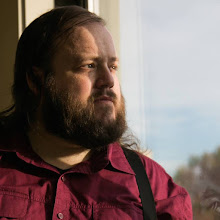I haven't (yet) read his book on the topic, so maybe he explains things more carefully there, but as presented in the video, I have some uncertainty about whether his logic is sound.
For example, he says (a little over 31 minutes in):
The truth is we feel or presume an authorship over our own thoughts and actions that is illusory. If I could detect all of your conscious thoughts and intentions and subsequent behaviors with a brain scanner some moments before you were aware of them, you would be rightly shocked, because it would undermine your sense that you are the prime mover of your inner life. How can we be free, as conscious agents, if everything we consciously intend, was caused by events in our brain, which we did not intend, and over which we had no control. We can't. So what does this mean?And in particular, let me pick a particular phrase which I take issue with: "over which we had no control". Here's the thing:
To say that a conscious thought was caused by events in our brain, which we did not intend is not the same as saying we have no control. And I assert that we may have some control. In particular, it seems to me that if we have any choice at all (and perhaps he argues that we don't, but he does go on to say that choices do matter), then one choice we have is to use the principles (whether consciously or otherwise) of reinforcement to shape the unconscious inputs into our still-illusory notion of choice. In a sense, we can become our own causes for future choices. So while we may indeed not be able to fully control any individual choice, do we perhaps have a way to influence future choices? If so, then his statement that our choices are something "over which we [have] no control" is erroneous, even if his broader statement that our notion of choice is illusory.
It surely warrants study... or perhaps the study has already been done, and I just need to read more. If nothing else, though, I humbly request that Mr. Harris make more acknowledgement of the distinction between the two arguments that our thoughts are controlled by prior causes, and that we have no control over them. Because these are, to my mind, different statements, and yet he seems to lump them together in one.
Perhaps I'll have more to say as I finish the video, and/or get the book and read it.

No comments:
Post a Comment